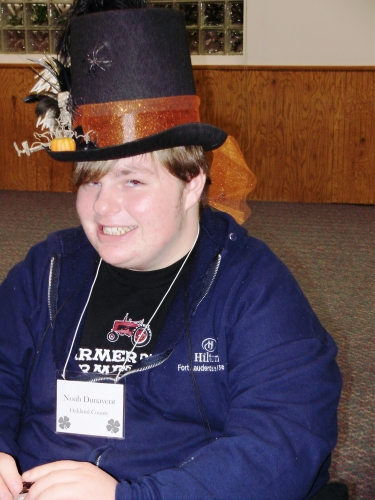Time management for teens: Becoming “ringmasters” – Act I
Teens need to understand the importance to take conscious control of their time and energy and to be proactive about planning their schedule, learning to manage time like a circus performance and becoming the ringmaster of a successful show.

Teens have to understand the need to take conscious control of their time and energy, and be proactive about planning their schedule. They need to work effectively with others and also take time for themselves to become successful adults. It is very easy to have a discussion on the fast-paced nature of school and life. Just like adults, youth need a system or structure to better focus their time and energy. By using the image of looking at one’s situation like a circus, it is easy to understand and develop some time management skills.
- For Act I of the show, I will cover how one needs to see themselves as the “ringmaster” of their circus. In the circus, there are three rings. The three rings for a teenager are:
- School – high school or technical school, college, etc.
- Relationships - friends, team, club, etc.
- Self - exercise, healthy eating, resting, etc.
Teens need to focus on a goal for their schedule and the importance of each ring to be successful (the circus uses a spotlight). Focusing on all three rings at one time would be like trying to juggle elephants. Just as a circus needs a good “line up” to flow and be successful, the teenager’s lineup plan needs to have set goals in their schedules with the three rings. How can teens accomplish these goals? Here are some suggestions:
- Use calendars
Is there a master calendar so that each family member can check the lineup daily? Do you have your own calendar to keep with you to ensure that acts don’t “get lost” because they are added to one calendar, but not the master family calendar? An example would be the “school” ring and a big test that may be scheduled. The “spot light” needs to be on it to attain the goal of a good grade. - Get
a timer
While this may seem silly, using a timer to help manage practice time, computer time, video games, TV, homework, etc. has its benefits. This will help with the distractions that take up valuable time needed for a set goal, like getting a good grade on an upcoming exam that will influence further education like college or trade school. - Avoid
“over programming” yourself
Set limits to what you will say “yes” to. Build time in your schedule to spend with family, friends, yourself and those unexpected acts that show up at any time. This will benefit your “relationship” ring (say you have a friend that needs your support) and your “self” ring in avoiding physical burn out.
By being the “ringmaster” teens can understand the need to take conscious control of their time and energy for a successful show. Act II of the circus will identify key people and performers with strategies in the circus. With the skills of time management, may all your days be circus days!
In the words of Michael Altshuler, “The bad news is time flies. The good news is you're the pilot!”



 Print
Print Email
Email

